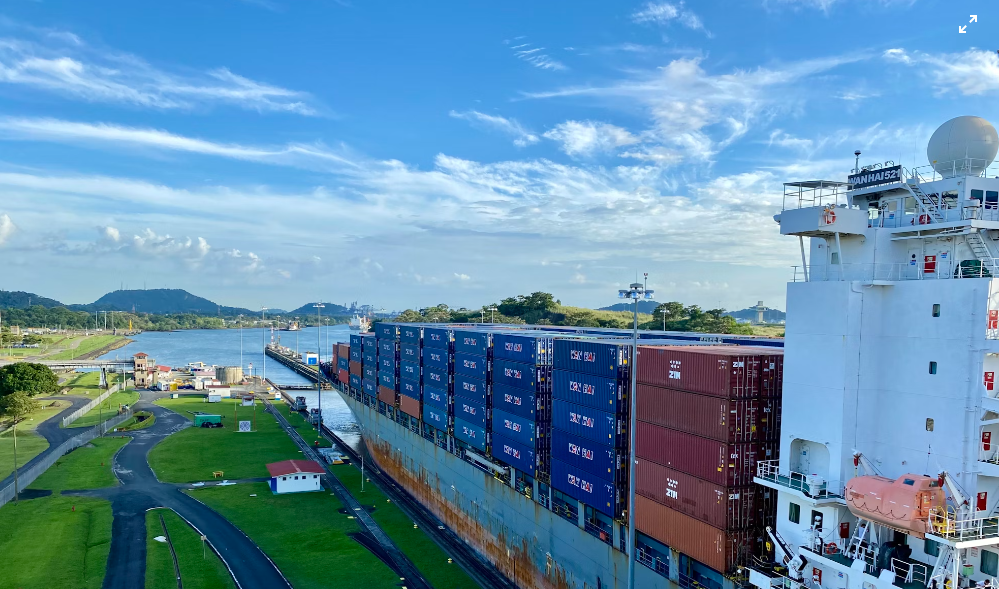
Image:Rikin Katyal
The cost for shippers to navigate through the Panama Canal has experienced a remarkable drop, alleviating the financial strain on maritime logistics. The backlog of vessels waiting to traverse the canal has significantly reduced, primarily driven by tankers opting for alternative routes, steering clear of the canal.
The Panama Canal has grappled with severe congestion, leading to a reduction in its daily operating slots to just one-third of the usual transit capacity. This congestion is exacerbated by ongoing drought conditions, a consequence of the El Niño phenomenon. The critical freshwater resources used for canal operations are at risk, threatening both the country’s drinking-water supply and the canal’s functionality. Unfortunately, these dry conditions are expected to persist until the onset of the rainy season in April to June.
As of January, the average auction price for Neopanamax slots, catering to the largest class of tankers allowed through the canal, plummeted. This substantial decrease in auction prices is attributed to the limited number of bidders for these slots. Francisco Torné, based in Panama and affiliated with shipping agency Waypoint Port Services, highlighted that reduced demand has contributed to the decline in final auction prices.
Notably, the auction prices for canal slots had skyrocketed to nearly $4 million in November of the previous year. The decrease in demand for these slots is primarily a result of vessels diverting from the Panama Canal, opting for alternative routes. This shift in maritime traffic is further exacerbated by heightened security concerns surrounding the Red Sea and Suez Canal, causing disruptions in global shipping patterns.
These fluctuations in auction prices and the choice of alternate routes underscore the adaptability of the maritime industry to dynamic challenges. Shippers, facing the ripple effects of weather-related canal congestion, are strategically choosing more feasible paths for their vessels. As the maritime landscape navigates through these challenges, the industry remains resilient, adapting to ensure the smooth flow of global trade.

